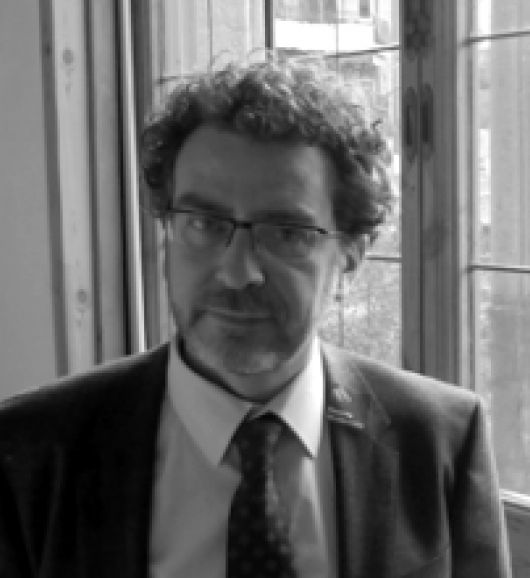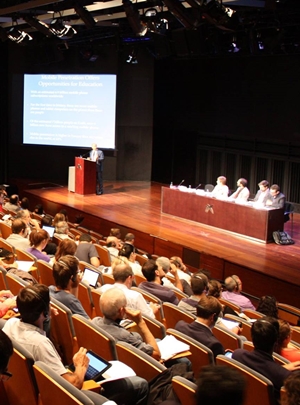How is the teaching profession in Europe? What are the ideal conditions for teaching? How should to be the teacher training? Does the teaching profession deserve such a social recognition?
On 10 December 2015 we discussed with Peter Birch, Coordinator of Educational Policies and Systems Analysis from the European Commission, the latest publication of the EURYDICE Network: «The Teaching Profession in Europe». This study focuses on analysing the relationship between the policies that govern the teaching profession and attitudes, practices and perception of teachers. The report combines qualitative information on the regulations of each country with statistical information extracted from the OECD report TALIS 2013, and provides comparative data from 35 European countries.
Is the teaching profession attractive in Europe today? Do teachers work in the proper conditions? Does the training meet the system needs? What is the degree of social recognition of the teaching profession? What are the measures of the European countries to improve the quality of initial and lifelong training of teachers? What are the most successful models of teacher training in Europe? What is the impact of feminization in the teaching profession? Do teachers work under the best suitable conditions to address the demands that society performs daily at school? Do the current assessment helps to encourage good practices of pedagogical innovation of teachers? In a context of budget adjustments, public policies have sufficient account of the professional development of teachers? What is the level of social trust in the teaching profession? How does it affect the quality of education?
Recently, both the European Commission and the Council of the European Union stressed the need to improve teachers training, strengthen their professional development and their ethical commitment to education as a common good, and to increase the attractiveness of their profession, as a further measure in the modernization of educational systems in Europe in order to meet the new demands and social needs.
This study recommends improving professional cooperation and exchange of knowledge and innovative practices among teachers in Europe.
These are some conclusions of this study:
• The teaching profession consists primarily of women.
• The professional body of teachers are in the process of ageing and they are very experienced.
• In two-thirds of European countries, novice teachers have additional training and support (induction phase).
• Teachers require more continuous training on new and innovative teaching methods than on its subject.
• Less than a third of European teachers have done professional stays abroad.
• The attractiveness of the teaching profession vary considerably between countries and is multicausal: working conditions, collaboration among teachers, evaluation systems...
Join the debate!
Participants:
- Peter Birch, Coordinator of Educational Policies and Systems Analysis from the European Commission.
- Enric Prats, Professor of International Education at the University of Barcelona and Coordinator of Education International Perspectives on TALIS 2013 (The OECD Teaching and Learning International Survey).
- Montse Ros, Secretary of Education Policy of Comisiones Obreras.
- Miguel Martínez, Professor of Education Theory at the University of Barcelona and Coordinator of the Programme of Improvement and Innovation in Teacher Training (MIF) promoted by the Interuniversity Council of Catalonia.





